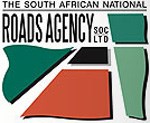
Top stories






More news














The e-tolling, which comes into effect from the end of this month means that motorists from other parts of the country could find themselves paying three times the standard toll fee to use the new Gauteng freeways and nearly six times the discounted rate for locals who fit e-tags to their cars and have e-toll accounts.
This was clear from the schedule of tariffs for the toll roads, which was gazetted on Friday, 13 April, said Peter Hugo, chairperson of the Cape Chamber of Commerce & Industry's transport portfolio committee on Monday.
Hugo said the special new rate was clearly an attempt to bully Gauteng freeway users into opening e-toll accounts.
The only way round the punitive tariffs would be for visitors to buy day passes at a cost of R30 per day.
The Cape Chamber has written to the Department of Transport to object to the e-tolling system, the way it has been introduced and plans for a special uniformed force to police the system.
"We were given just 20 days to comment and the period included the Easter holidays," Hugo said. "We objected to the short notice but the department has made the situation even worse by creating a new category of user on the last day of the time for comment."
In its letter of objection the chamber said the plans for a uniformed force to police the freeways simply added to administrative costs and would not be necessary if a simple fuel levy had been used.
"Business understands that the roads have to be paid for but objects strongly to the use of electronic systems to sustain an unnecessary administration," Hugo said.
Andrew Layman, CEO of the Durban Chamber of Commerce & Industry said that among the concerns was the cost of administration would be a very high percentage of the expected revenue, which was very costly to implement.
"E-tolling was billed on the basis that users would pay for the maintenance or construction of roads not a large amount to be paid on administration of the system," he said.
Layman said that SA did not have a large homogenous and compliant population, as in other countries that have similar tolling systems.
"In those countries people top up their accounts and no large police force is necessary to chase after a whole lot of non-compliant people," he said.
The regulations allow for the SA National Roads Ltd to create its own law enforcement arm to ensure that users pay the prescribed rates.
Hugo said the proposed legislation failed to understand that owners did not drive their commercial vehicles and that several drivers could drive a single vehicle during the course of a month.
He said the enforcement officials would be able to question drivers on the payment of toll fees but drivers would not know the answers as the owners and not the drivers were billed for toll fees.
In the case of a hired vehicle, the driver would have no way of knowing how or where or by whom the vehicle was previously used. This, said the chamber, was like making the new owner of a used car responsible for the previous owner's traffic fines.
The Cape chamber said the presumption that the owner drove the vehicle was unrealistic and unenforceable.
"While owners could be responsible for their authorised employees, companies which hired out trucks and cars could not be expected to assume responsibility for their clients.

For more than two decades, I-Net Bridge has been one of South Africa’s preferred electronic providers of innovative solutions, data of the highest calibre, reliable platforms and excellent supporting systems. Our products include workstations, web applications and data feeds packaged with in-depth news and powerful analytical tools empowering clients to make meaningful decisions.
We pride ourselves on our wide variety of in-house skills, encompassing multiple platforms and applications. These skills enable us to not only function as a first class facility, but also design, implement and support all our client needs at a level that confirms I-Net Bridge a leader in its field.
Go to: http://www.inet.co.za